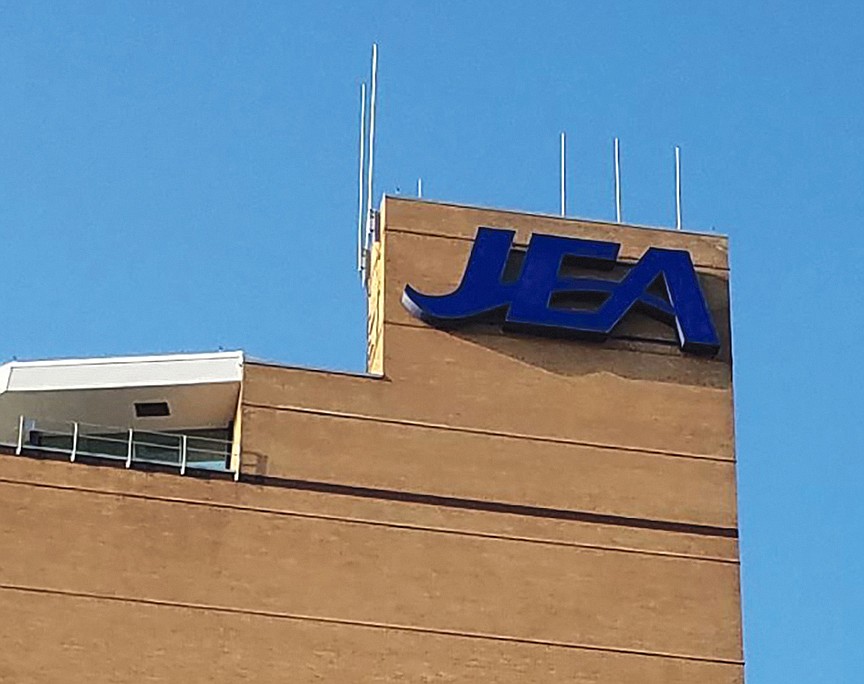
The Northeast Florida Builders Association says JEA’s proposal for a one-time, almost $9,100 increase to water and sewer fees on new homes could price some buyers out of the market.
The JEA board postponed a vote on the increase Aug. 24 because it lacked a quorum.
The change would increase JEA’s capacity and meter fees paid by developers and builders from $3,649 today to $9,098 by April 2023.
Some NEFBA members say builders likely will pass along some of the fee hikes to the buyers in a market where home prices are rising.
In a letter to the JEA board Aug. 20, NEFBA President Keith R. Ward said the fee increases could put Jacksonville at a competitive disadvantage with housing markets in neighboring counties and cities.
“It is our belief that the proposed increase has risen to a level that will have damaging effects on the ability to deliver affordable housing in the JEA service area,” Ward’s letter says.
JEA began meeting with NEFBA leaders in December 2020 when the utility initially proposed a $7,559 increase to the fees, according to the letter.
Utility CEO Jay Stowe and his executive team say the increases are partially due to a 15-year gap from the last time JEA evaluated and adjusted the fees.
According to JEA, that is coupled with a fast-growing housing market in JEA’s service area, creating the need for more plant capacity.
Meeting information shows $327 million in projects in JEA’s five-year capital improvement plan related to water and sewer capacity growth.
The water plant capacity fees would rise from $339.50 for a standard ¾-inch residential water line to $936 by April 2023, according to JEA board materials and presentations by JEA Director of Financial Planning and Analysis Juli Crawford.
Crawford said JEA staff also recommends the board increase the one-time sewer capacity fee from $1,274 to $5,114 and the irrigation fee from $339.50 to $1,053 by April 2023.
The meter fee would rise from $202.33 to $300.
The fees would be phased in over 18 months, a decision Stowe said came after meeting with local developers and builders to make it easier for the market to absorb the cost.
NEFBA also requested the phase-in approach in its Aug. 20 letter.
An existing $1,695 line extension growth capacity charge that added to those fees will go unchanged, according to Crawford’s presentation.
JEA expects the combined fee increases for water and wastewater services will generate $36 million in annual revenue by fiscal year 2023, according to the board materials.
The board also is considering a tap fee increase from $610 to $1,360, which would affect existing neighborhoods or homes connecting service lines.
‘Not to make a profit’
JEA board Chair John Baker said Aug. 24 the hikes are not about profit.
“Let no good deed go unpunished. No rate increase for 15 years should be a good thing. It is until it isn’t. That’s where we are now,” Baker said.
“We are only trying to recover the cost of operations, not make a profit on it.”
Curtis Hart, NEFBA political action committee chair and Hart Resources LLC president, told board members Aug. 24 that for every $1,000 increase in Jacksonville’s median home price, 800 buyers are priced out of the market.
A chart in the Aug. 24 meeting materials shows that the increases would make JEA’s combined capacity fees some of the most expensive in Florida, with the cities of Apopka, Ocoee, West Palm Beach and Collier County higher.
Crawford said the chart does not take into account projected increases from other utilities.
NEFBA noted in its letter that the increase would make JEA’s fees more expensive than those by the St. Johns County Utilities Department and the Clay County Utility Authority.
Crawford said part of JEA’s proposal for regular analysis of the fees will be to monitor other Florida utilities during the 18-month phase-in to make sure JEA’s increases are in line with trends.
“Should the benchmark continue to be a concern as we are moving through the phases recommended, we will reevaluate the increases in comparison to others and we can adjust at that time,” Crawford said.
The vote schedule
The board postponed the vote because not enough board members were present at the meeting in JEA’s Downtown headquarters to reach a quorum.
Baker and board members Joseph DiSalvo and Tom VanOsdol were present in person, while Marty Lanahan, Zachary Faison Jr. and Vice Chair Bobby Stein attended the meeting virtually.
State law prohibits government board members attending meetings virtually from voting.
Stowe said the board will target a Sept. 17 vote on the fee adjustments, which will include a residential electric rate increase.
The rate increase would be in conjunction with a fuel rate decrease, which Stowe said at the June 22 board meeting would mean a “net neutral” impact and not raise the average residential customer’s bill in fiscal year 2022.